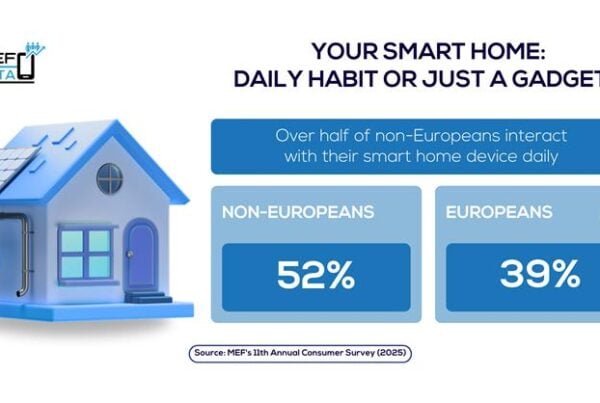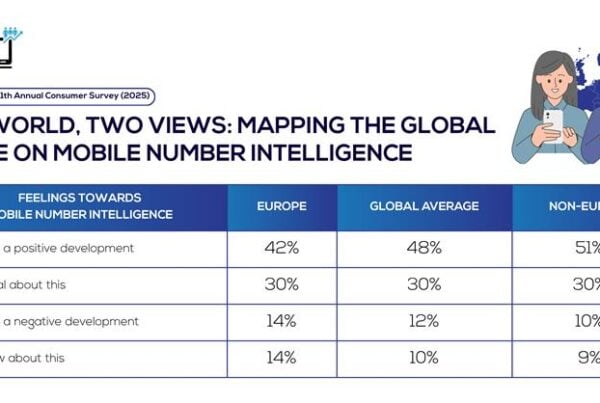MEF Advisor Paul Ruppert explores the impact of the U.S. Supreme Court’s recent ruling granting district courts the authority to independently interpret FCC rulings under the TCPA. This marks a pivotal shift in U.S. telecom regulation and for businesses operating in messaging, CPaaS, and digital marketing, may significantly increase legal complexity, compliance uncertainty, and litigation exposure.
The recent U.S. Supreme Court 6–3 decision in McLaughlin Chiropractic Associates v. McKesson fundamentally alters the regulatory landscape for telecommunications in the United States.
By allowing district courts to independently interpret FCC rulings, this judgment dramatically reduces regulatory clarity and creates considerable compliance uncertainty for enterprises engaged in messaging, CPaaS, and digital marketing.

For MEF members, this decision elevates litigation risks and compliance burdens, demanding urgent attention and strategic action.
Summary of the Supreme Court’s Ruling
On June 20, 2025, the Supreme Court held that district courts can independently interpret FCC rulings under the Telephone Consumer Protection Act (TCPA). This significant departure from judicial deference introduces new compliance uncertainties in telecom regulation.
Background: The Case That Challenged FCC Authority
The McLaughlin case began when a chiropractic practice sued McKesson Corporation for unsolicited fax advertisements. Initially, courts deferred to FCC interpretations favouring McKesson. However, the Supreme Court reversed, explicitly stating courts are free to independently assess the accuracy of agency interpretations. This challenges established FCC authority and reopens critical TCPA compliance issues.
What is the TCPA?
Enacted in 1991, the Telecommunications Consumer Protection Act (TCPA) restricts automated calls, faxes, and texts to protect consumer privacy. Key provisions include requiring consent for automated communications, honoring the National Do Not Call Registry, and mandating clear opt-out mechanisms. Violations carry penalties ranging from $500 to $1,500 per infringement.
This judgment fundamentally challenges longstanding FCC authority and reopens core TCPA interpretative issues—including the definitions of autodialers, consent protocols, and liability for fax, call, and text message compliance.
This judgment fundamentally challenges longstanding FCC authority and reopens core TCPA interpretative issues—including the definitions of autodialers, consent protocols, and liability for fax, call, and text message compliance.”
Implications for MEF Members
The Supreme Court’s decision carries profound implications for companies within the MEF ecosystem:
- CPaaS Providers & Aggregators: Increased litigation risk arises from differing interpretations of key TCPA terms across federal or state jurisdictions. Providers must now prioritize robust consent management solutions, comprehensive audit trails, and proactive legal advisories.
- Enterprise Brands & Marketers: Enterprises face heightened complexity in distinguishing between promotional and transactional messaging. The risk of jurisdictional shopping, where plaintiffs seek favorable courts, becomes real and immediate, demanding a more sophisticated legal strategy.
- Mobile Operators & Platforms: Potential shifts in A2P messaging volumes could occur as enterprises reassess compliance strategies. Operators now have opportunities to offer compliance-as-a-service tools, helping enterprises navigate the increasingly complex landscape.
How Alarming is this Ruling?
From an industry perspective, this ruling is deeply alarming. It undermines decades of regulatory clarity provided by the FCC, creating fragmented compliance standards across jurisdictions. Businesses that once relied on unified FCC guidelines now face increased litigation risks, higher compliance costs, and operational uncertainty. This is particularly problematic given the rapid growth of A2P messaging and enterprise digital engagement, critical growth areas for MEF members.
Rationale Behind the Supreme Court’s Decision
The Supreme Court’s decision aligns with recent Administration trends toward limiting federal agency authority and enhancing judicial oversight. The Court emphasized preserving judicial independence, highlighting the necessity of courts independently interpreting statutes rather than deferring blindly to agency determinations. While perhaps defensible from a judicial governance perspective, the ruling introduces considerable commercial uncertainty, potentially stifling technology innovation and investment in digital communications infrastructure.
Call to Action for MEF Members
In response to this significant regulatory shift, MEF members must act swiftly and strategically:
- Enhance Legal & Compliance Functions: Immediately review compliance protocols and ensure flexibility to accommodate differing judicial interpretations. Establish close collaboration with specialized legal advisors to monitor litigation trends and adapt rapidly.
- Invest in Compliance Technologies: Leverage advanced consent management platforms and develop robust audit trails to substantiate compliance proactively.
- Engage Proactively with Policymakers: Advocate clearly and consistently for legislative clarity and unified regulatory frameworks. Collective industry voices can influence lawmakers to reinforce the stability previously offered by centralized regulatory interpretation.
- Collaborate internally within MEF: Strengthen internal MEF working groups to share best practices, litigation insights, and regulatory developments. Collective intelligence will enable faster, more informed industry responses.
- Form Strategic Alliances: Partner with like-minded trade associations and adjacent industry groups to collectively advocate for clearer regulatory standards and unified judicial interpretations, representing a strong, unified voice for the broader telecommunications ecosystem.
The McLaughlin decision underscores a critical reality: MEF members operate in a rapidly changing regulatory environment where agility, proactive compliance strategies, and industry-wide advocacy are no longer optional—they are imperative.
By responding decisively, collaboratively, and strategically, MEF members can navigate this uncertain landscape effectively, minimizing risks and positioning themselves for sustained success.





